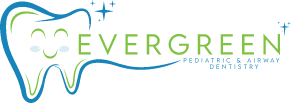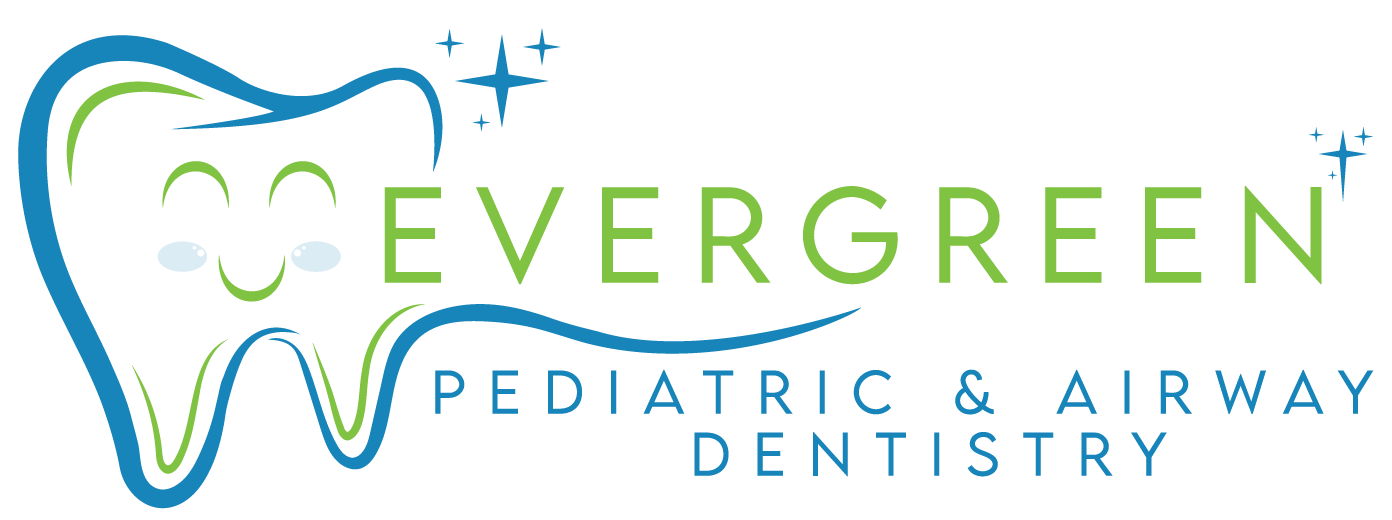Preventing Cavities: How Teeth Cleaning Plays a Vital Role
Imagine biting into your favorite treat without the nagging worry of a painful cavity. Cavities are more than a minor inconvenience; they can lead to significant dental issues if not properly managed. The good news is that preventing cavities is within your control, and one of the most powerful tools in your arsenal is regular teeth cleaning. This simple yet effective practice can be the difference between a healthy smile and frequent trips to the dentist for fillings. In this comprehensive guide, we’ll explore how teeth cleaning plays a vital role in cavity prevention and what steps you can take to maintain optimal oral health.
Understanding Cavities: What Are They?
Understanding cavities is essential to grasping how teeth cleaning plays a vital role in preventing them. Cavities, also known as dental caries or tooth decay, are permanently damaged areas in the hard surface of your teeth that develop into tiny openings or holes. They are primarily caused by a combination of factors including bacteria in the mouth, frequent snacking, sipping sugary drinks, and not cleaning your teeth well. When you consume foods and drinks high in sugars, the bacteria in your mouth produce acids that attack the tooth enamel, the hard, outer layer of your teeth. Over time, these acid attacks can lead to the enamel breaking down and forming cavities.
Regular teeth cleaning visits are crucial in preventing the formation of cavities by addressing these causative factors effectively. Professional cleanings remove plaque, a sticky film of bacteria, from the surfaces of your teeth and especially from areas that are difficult to reach with regular brushing and flossing. Plaque buildup is a significant contributor to the development of cavities, as it harbors the bacteria responsible for producing harmful acids. During these visits, dental hygienists use specialized tools to thoroughly clean your teeth, eliminating plaque and tartar buildup, which cannot be removed by brushing alone. Additionally, professional fluoride treatments provided during cleanings strengthen the enamel, making it more resistant to acid attacks.
Moreover, teeth cleaning appointments offer a valuable opportunity for early detection and intervention. Dentists can identify early signs of tooth decay before they progress into full-blown cavities. This early detection allows for less invasive treatments, such as fluoride applications or dental sealants, which can halt the progression of decay and protect the teeth. Education provided during these visits also empowers patients with knowledge about proper oral hygiene practices, dietary choices, and other preventive measures. By maintaining regular cleaning visits, individuals can proactively manage their oral health and significantly reduce the risk of developing cavities, ensuring stronger and healthier teeth.

Pediatric Teeth Cleaning
The Science Behind Teeth Cleaning
The science behind teeth cleaning is fundamental to understanding how this practice plays a vital role in preventing cavities. Teeth cleaning, both at home and professionally, involves the removal of plaque—a sticky film composed of bacteria, food particles, and saliva. Plaque is the primary culprit in the development of cavities because the bacteria within it produce acids that erode tooth enamel. When these acids break down the enamel, they create tiny openings or holes, known as cavities, which can lead to further decay and infection if left untreated. Regular brushing and flossing help minimize plaque buildup, but professional cleanings are essential for maintaining optimal oral health.
Professional teeth cleanings utilize specialized tools and techniques to thoroughly clean teeth and gums, areas that are often missed during regular at-home care. Dental hygienists use instruments such as scalers and ultrasonic devices to remove plaque and tartar (hardened plaque) from the tooth surfaces and along the gum line. Tartar cannot be removed by brushing alone and can harbor bacteria that contribute to tooth decay and gum disease. By effectively eliminating these deposits, professional cleanings play a key role in preventing cavities and promoting overall dental health. Additionally, polishing the teeth smooths the surfaces, making it more difficult for plaque to adhere, thereby providing a protective benefit between visits.
Beyond mechanical cleaning, professional teeth cleanings often include fluoride treatments that enhance enamel strength and resistance to acid attacks. Fluoride, a natural mineral, helps to remineralize tooth enamel, reversing early signs of decay and making teeth more resilient to future bacterial assaults. The application of fluoride during cleanings provides a concentrated dose that is more effective than over-the-counter products. This scientific approach to dental care not only addresses existing plaque and tartar but also fortifies the teeth against future decay. Regular professional cleanings, combined with diligent at-home oral hygiene, form a comprehensive strategy rooted in science to prevent cavities and ensure long-term dental health.
Daily Brushing and Flossing: Your First Line of Defense
Daily brushing and flossing are your first line of defense in preventing cavities, playing a crucial role in maintaining good oral health. Brushing twice a day with fluoride toothpaste helps remove food particles and plaque from the surfaces of your teeth. Plaque is a sticky film of bacteria that forms on teeth and gums after eating and drinking. If not removed regularly, it can produce acids that attack tooth enamel, leading to cavities. Proper brushing techniques, including reaching all surfaces of each tooth and brushing for at least two minutes, ensure that most of the plaque is effectively eliminated, reducing the risk of decay.
Flossing complements brushing by cleaning between the teeth and along the gum line where a toothbrush cannot reach. These areas are prone to plaque buildup and can easily become breeding grounds for cavity-causing bacteria if not cleaned properly. By flossing daily, you remove trapped food particles and disrupt the formation of plaque, preventing it from hardening into tartar, which requires professional removal. Additionally, flossing helps reduce inflammation and prevent gum disease, which is often associated with poor oral hygiene and can exacerbate the conditions leading to cavities.
Together, brushing and flossing form a comprehensive approach to oral hygiene that defends against cavities by keeping the mouth clean and free of harmful bacteria. They help maintain the integrity of tooth enamel and promote healthier gums, creating an environment less conducive to decay. Educating children and adults alike on the importance of these daily habits ensures that everyone adopts effective oral hygiene practices from an early age. Consistently practicing proper brushing and flossing not only preserves dental health but also contributes to overall well-being, as a healthy mouth is linked to a healthier body. By making these routines a non-negotiable part of daily life, you take proactive steps in safeguarding your teeth against cavities and other dental issues.
The Role of Fluoride Treatments
Fluoride treatments play a pivotal role in preventing cavities, making them an essential component of dental care. Fluoride, a naturally occurring mineral, helps to strengthen tooth enamel, the hard outer layer that protects teeth. When you consume foods and drinks containing fluoride or use fluoride-infused toothpaste and mouth rinses, it becomes incorporated into the enamel, enhancing its resistance to acid attacks from plaque bacteria and sugars. This process, known as remineralization, can even repair early stages of tooth decay before they become visible cavities, providing a significant protective barrier against dental caries.
Professional fluoride treatments, administered during regular dental cleanings, provide a concentrated dose of fluoride that offers superior protection compared to over-the-counter products. These treatments often come in the form of a gel, foam, or varnish applied directly to the teeth, allowing for maximum absorption. The high concentration of fluoride in these treatments accelerates the remineralization process, providing immediate reinforcement to the enamel. This is particularly beneficial for individuals at higher risk of developing cavities, such as children, those with poor oral hygiene habits, or individuals with a history of frequent dental decay. By fortifying the enamel more effectively, professional fluoride treatments offer a robust defense against cavity formation.
In addition to strengthening enamel, fluoride treatments also reduce the ability of bacteria to produce acid, further lowering the risk of tooth decay. By inhibiting bacterial activity, fluoride disrupts the process that leads to demineralization, where acids erode the tooth structure. This dual action—strengthening enamel while inhibiting harmful bacteria—makes fluoride treatments a powerful tool in cavity prevention. Regular application, as part of a comprehensive dental care routine that includes daily brushing and flossing, ensures long-lasting protection. By incorporating fluoride treatments into regular dental visits, patients can significantly reduce their risk of cavities and maintain healthier teeth, contributing to overall oral health and well-being.

Pediatric Fluoride Cleaning
Identifying and Addressing Problem Areas
Identifying and addressing problem areas during teeth cleaning is crucial in preventing cavities and maintaining overall oral health. During a professional dental cleaning, the dentist or hygienist meticulously examines the teeth and gums for signs of decay, plaque buildup, or other issues that might not be apparent to the untrained eye. These trained professionals use tools such as dental mirrors and explorers to detect areas where bacteria might be hiding, particularly in hard-to-reach places like between the teeth and below the gum line. Early detection of these problem areas allows for prompt intervention, which can prevent minor issues from developing into serious cavities.
Once problem areas are identified, targeted treatments and strategies can be employed to address them. For instance, if plaque accumulation is found in specific spots, the dental hygienist will focus on thoroughly cleaning these areas using specialized instruments. Additionally, patients can receive tailored advice on how to improve their home care routines to better manage these problem zones. This might include recommendations for using interdental brushes, floss threaders, or antimicrobial mouth rinses to ensure these areas are kept clean. By focusing on personalized preventive care, dentists empower patients to take an active role in maintaining their oral health and preventing cavities.
Addressing problem areas also involves educating patients on the importance of regular dental visits and proper oral hygiene practices. Understanding the potential risks associated with neglected oral health encourages individuals to adopt better habits and prioritize their dental care. By highlighting the connection between identified problem areas and the development of cavities, patients become more aware of the critical steps necessary to protect their teeth. Regular cleanings, combined with individualized care plans, create a robust defense against cavities and promote long-term oral health. Through diligent identification and proactive management of problem areas, the risk of cavities can be significantly reduced, ensuring healthier smiles and overall well-being.
Dietary Considerations: Feeding Your Teeth
Dietary considerations play a crucial role in preventing cavities, and understanding how to “feed” your teeth is an important aspect of oral health. Consuming a balanced diet that is rich in essential nutrients helps strengthen tooth enamel and promotes overall dental health. Foods high in calcium and phosphorus, such as dairy products, leafy greens, nuts, and lean meats, are particularly beneficial as they help remineralize the teeth, making them more resistant to decay. Additionally, foods rich in vitamins A, C, and D support gum health and aid in the repair and maintenance of oral tissues, further protecting against cavities.
Sugary and starchy foods are the main culprits in the development of cavities because they provide a food source for harmful bacteria in the mouth. These bacteria produce acids that erode tooth enamel, leading to decay. Limiting the intake of sugary snacks, sodas, and processed foods can significantly reduce the risk of cavities. Instead, opting for fibrous fruits and vegetables, like apples, carrots, and celery, can improve oral hygiene by stimulating saliva production, which naturally cleanses the mouth and neutralizes harmful acids. Drinking plenty of water also helps wash away food particles and sugars, keeping the mouth clean and reducing the chances of bacterial growth.
Incorporating these dietary habits into daily routines works hand-in-hand with regular teeth cleaning to prevent cavities effectively. Dental professionals often provide personalized nutritional advice based on individual needs, helping patients understand the impact of their diet on oral health. By making mindful food choices and maintaining a consistent oral hygiene routine, individuals can create a healthier environment in their mouths that is less prone to decay. Understanding the connection between diet and dental health empowers people to take proactive steps in cavity prevention, ensuring stronger teeth and healthier smiles for the long term. By feeding your teeth the right nutrients and avoiding harmful foods, you lay the foundation for lasting oral health.
Building a Routine: Consistency is Key
Building a consistent oral hygiene routine is fundamental in preventing cavities and maintaining long-term dental health. Regular teeth cleaning, both at home and through professional dental visits, forms the backbone of this routine. Brushing twice daily with fluoride toothpaste removes food particles and plaque from the surfaces of your teeth, preventing the buildup of harmful bacteria that can cause cavities. Morning and evening brushing should be non-negotiable habits, ensuring that your teeth are protected from bacterial attacks throughout the day and night. Incorporating proper brushing techniques, such as using gentle circular motions and reaching all areas of the mouth, enhances the effectiveness of this practice.
Flossing daily is another critical component of a cavity-preventing routine. While brushing cleans the surfaces of your teeth, flossing reaches the spaces between them and along the gum line where plaque often accumulates. This interdental cleaning helps prevent the formation of cavities in these hard-to-reach areas and reduces the risk of gum disease. Using floss or interdental brushes effectively removes trapped food particles and plaque, promoting healthier gums and teeth. Making flossing a regular part of your daily routine reinforces your overall oral hygiene efforts, ensuring comprehensive dental care.
Consistency in professional dental visits is equally important for maintaining oral health and preventing cavities. Regular check-ups and cleanings allow dentists to monitor your dental health, identify early signs of decay, and provide essential treatments such as fluoride applications and dental sealants. These appointments also serve as opportunities for personalized advice and education on improving your home care routine. By adhering to a schedule of biannual dental visits, you can catch potential issues before they develop into more serious problems, receiving timely interventions that help preserve your teeth. Building and maintaining a consistent oral hygiene routine, supported by regular professional care, is the most effective strategy for preventing cavities and ensuring a healthy, radiant smile.

Teeth Cleaning
Conclusion
Preventing cavities is a proactive process that hinges on consistent and effective oral care practices. Regular teeth cleaning, both at home and professionally, plays an indispensable role in maintaining dental health and preventing the formation of cavities. By understanding the nature of cavities, leveraging the science behind teeth cleaning, incorporating fluoride treatments, identifying problem areas early, paying attention to dietary choices, and building a consistent routine, you can significantly reduce your risk of cavities. Embrace these practices with dedication, and enjoy the confidence that comes with a cavity-free, healthy smile. Investing in your oral health today pays dividends in the form of fewer dental issues and a brighter, pain-free future.
Evergreen Pediatric Dentistry
https://www.google.com/maps?cid=14720788683151219551
12910 Totem Lake Blvd NE #103, Kirkland, WA 98034, United States
(425) 814-3196
https://evergreenkidsdentist.com/


